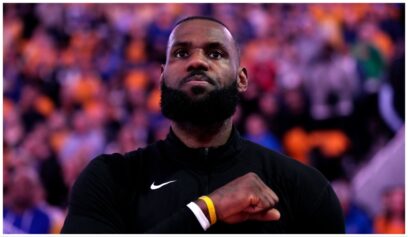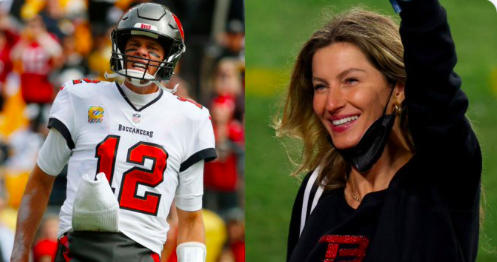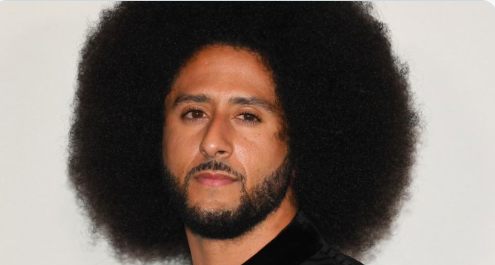Back in 2013, we learned that Luke Cage would be the third of a four-part effort from Marvel Studios and Netflix. After the success of “Daredevil” and “Jessica Jones”, one could not help but salivate at the thought of the hero from the hood finally making it to our television screens. We were gassed about it, but would have to wait a long time to see it.
Marvel must have heard the grumblings because they placated our hunger for Black superheroes by giving us appetizers before the main course. First they announced the hiring of Ryan Coogler and Chadwick Boseman to direct the movie “The Black Panther” and play the title role, respectively.
Then they set the internet on fire by releasing images of T’Challa from “Captain America: Civil War”, followed up by announcing that award-winning writer, Ta-Nehisi Coates, would be writing the new installment of the “Black Panter” comic book series and then giving comic book fans a reboot of “The Ultimates” featuring The Black Panther, Blue Marvel, Spectrum and Ms. America Chavez.
Needless to say, the Blerd community was beyond hyped.
Then “Civil War” dropped and when Boseman’s T’Challa/Black Panther hit the big screen, Blerds went off. The cool demeanor, the swagger in the walk, the intellect and the raw fighting fierceness once the costume came out in the chase scene with the Winter Soldier and Captain America set theaters and Black twitter ablaze with pride and an excitement that had been bottled up for years. No disrespect to Anthony Mackie and Falcon, but Black Panther holds a different and, I think most would agree, much more significant meaning for Blerds worldwide.
“Civil War” ushered in the summer movie season and when the San Diego Comic Con opened its doors, it happened- Marvel and Netflix dropped the “Luke Cage” trailer and the Blerd meter exploded. Set to ODB’s “Shimmy Shimmy Ya”, the upcoming series told us immediately that this was not going to be the yellow shirt and blue pants wearing Power Man that we grew up reading about.
This was for the Blerds. This was for the hood. This was for us.
Set in Harlem, complete with a Gang Starr influenced soundtrack, the show was unabashedly Black and the response vehemently certified it hood-platinum. Bald headed and black, Michael Colter threw up the hoodie, ripped off an SUV door and stomped into the projects, bullets bouncing off his skin after ripping through the sweatshirt. Thugs were thrown around like rag dolls, metal was twisted like a Twizzler and the announcement was made – Harlem had a new sheriff in town and his name was Luke Cage.
Although current day Harlem continues to go through a period of gentrification, “Luke Cage” gave us the feeling of the Harlem native New Yorkers knew about growing up. Rough and gritty, yet cultured and alive. It made us recall the days when “One-Two-Five” was packed with street vendors selling Shaw Brothers films on VHS, ads for “V.I.M.” flooded the airwaves on 98.7 KISS FM, mix tapes from Ron G., Kid Capri, DJ Juice and other DJs were sold alongside scented incense sticks, Dapper Dan was the place for the hottest gear and Bobby’s Happy House and the Harlem Record Shack were the homes for Black music on vinyl.
The streets were instantly recognizable, taking me back to the ’90s when I would head up to Carlton’s or Harlem Master’s Barbershop to get my cut every Saturday. And even though the latter is now an Applebee’s, the show made me flash right over that visual to recall the vibrant barbershop debates between Tony (RIP) and Polo over how good/bad the Cowboys were and that this was the year that the Knicks would finally win it all (still waiting).
“Luke Cage” is all about the city streets, hip-hop and Black culture. From a perfectly selected soundtrack that strengthens the accompanying scenes to the language in the script, the series was a honest depiction of a hero that we could celebrate instead of ridicule. And while the fight scenes screamed “World Star!”, they flowed in every way without having us shake our heads in disgust.
Much respect has to be given to Cheo Hodari Coker, the show’s Creator, Executive Producer and Showrunner, who kept the language, characters, interactions and scenes as realistic as an everyday encounter. It was blunt, raw and unapologetic, basically daring you to doubt it while stating “if you don’t get what we’re saying, this isn’t for you.”
And that’s one of the overall messages of the show- if you don’t get it, it really wasn’t made for you. I mean, what other show can make the hashtag “#SweetChristmas” ok to use without ridicule?
The series showcased the power of Black culture, with a particular focus on strong Black women. Misty Knight, who comic book readers have seen recently in the “Captain America Sam Wilson” series, is an embodiment of the strong Black woman who leads, inspires and empowers through her actions, words, values and attitude.
She’s a detective who won’t compromise her position and job for anything Luke does, and she’s not afraid to let him, or anyone else, know it. Mariah Dillard holds the same type of role, just from a different side of the street and, like Misty, she knows how to use her power and she fears no one, including bulletproof brothers.
Regardless of the side they represent, there’s no denying the powerful images they represent.
Misty Knight is in the house!!! #SweetChristmas#mistysolit#lukecagepic.twitter.com/mPRXKWNzel
Geeks Of Color (@GeeksOfColor) October 3, 2016
Sisters when do we come together and talk about @LukeCage being one of the most feminist pieces of media this year ? #LukeCage
Sydette (@Blackamazon) October 1, 2016
Black Mariah > Cottonmouth Stokes > Willis Stryker #LukeCage#SweetChristmas#MistySoLit
Black Girl Nerds (@BlackGirlNerds) October 2, 2016
In “Luke Cage”, Marvel, Netflix and Coker gave us what we wanted and waited too long for: a hero who was tangible and realistic. One who made us feel that he was an everyday brother, identifiable on any street in any hood. A super hero who screamed “I’m Black and I’m proud” by simply being who he was, and because of that, he said it loudly.
But, ultimately, they gave us a hero that we could be proud of. Unapologetically Black, hood certified and unequivocally ours.



